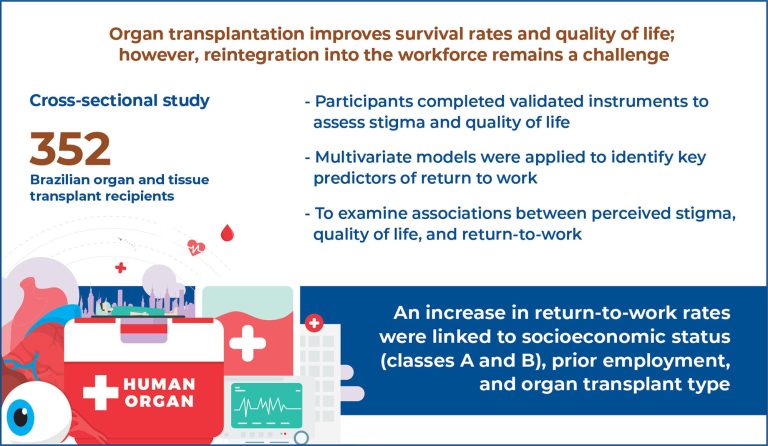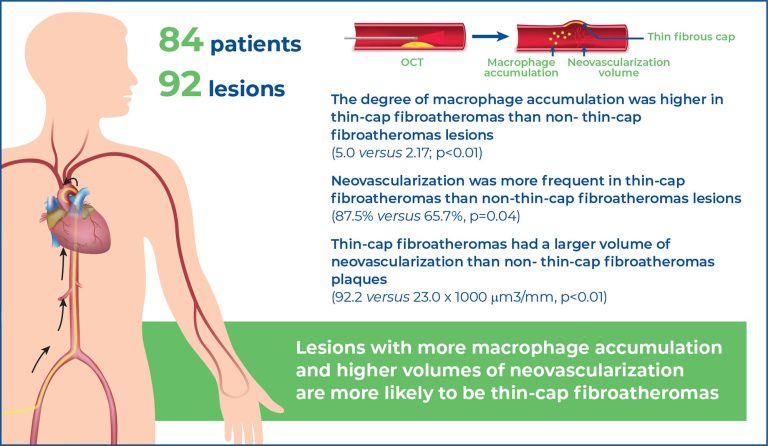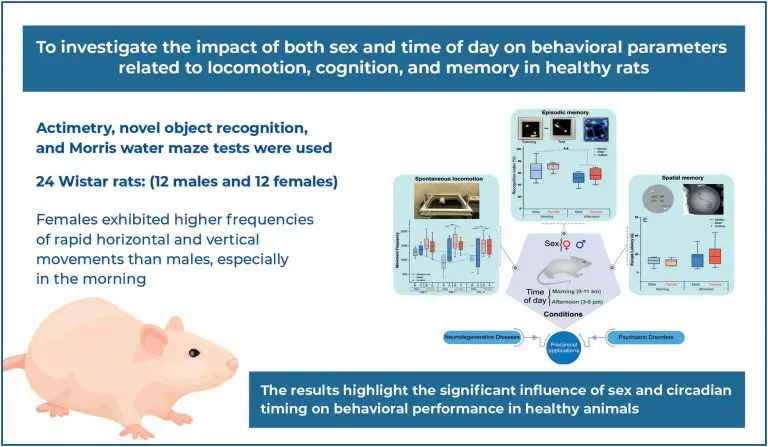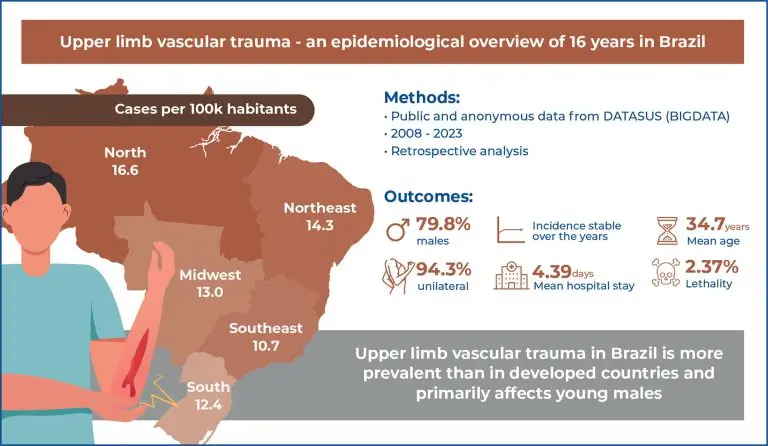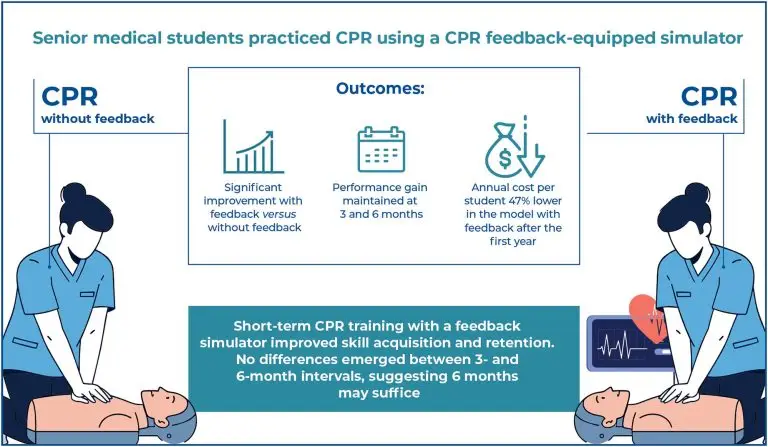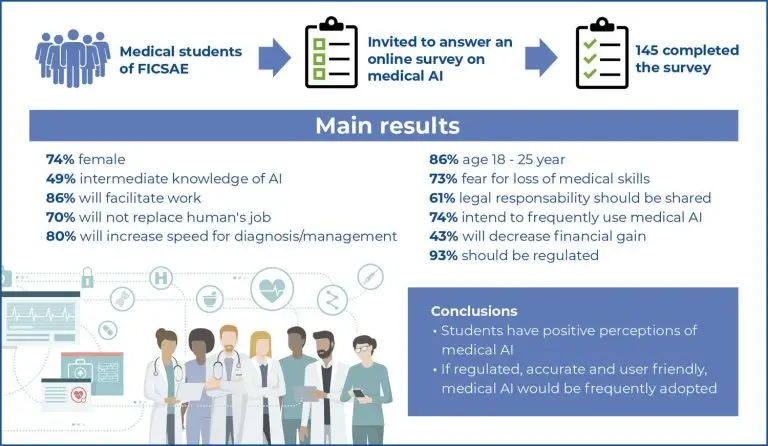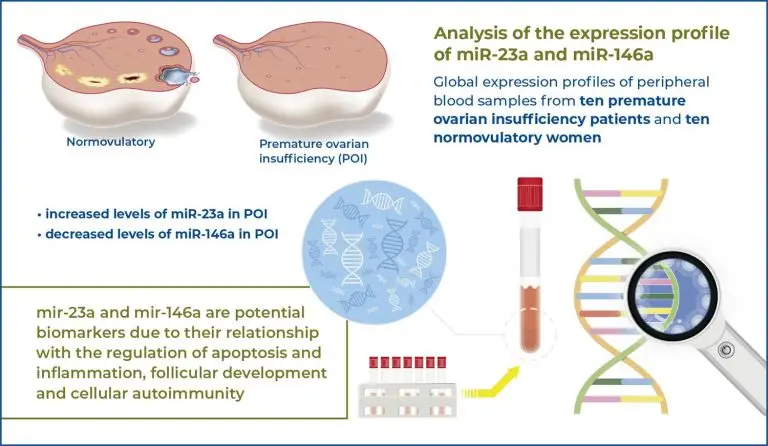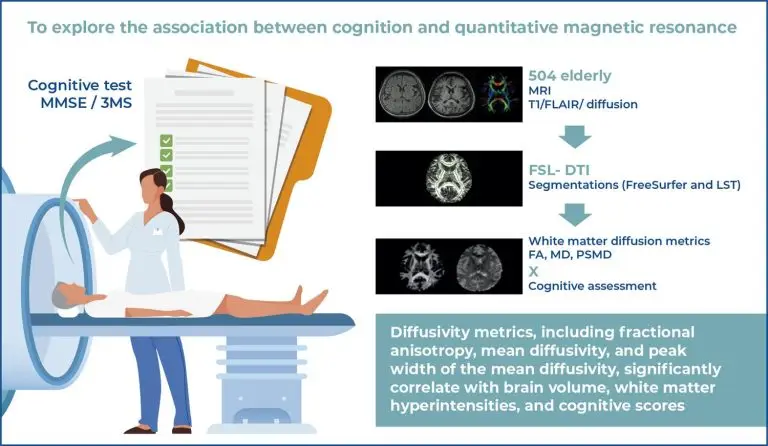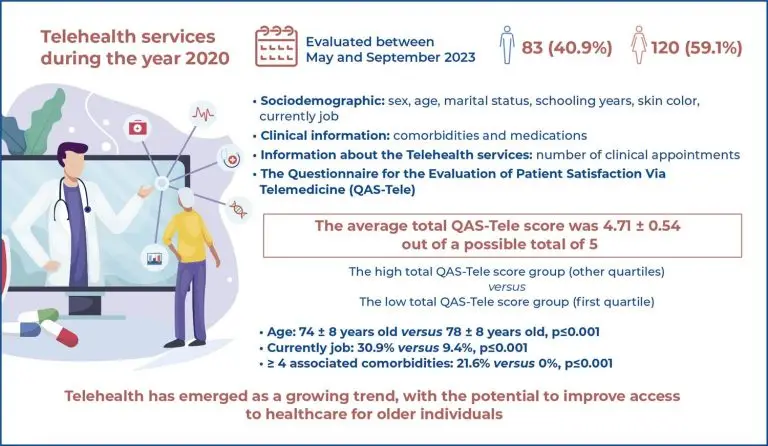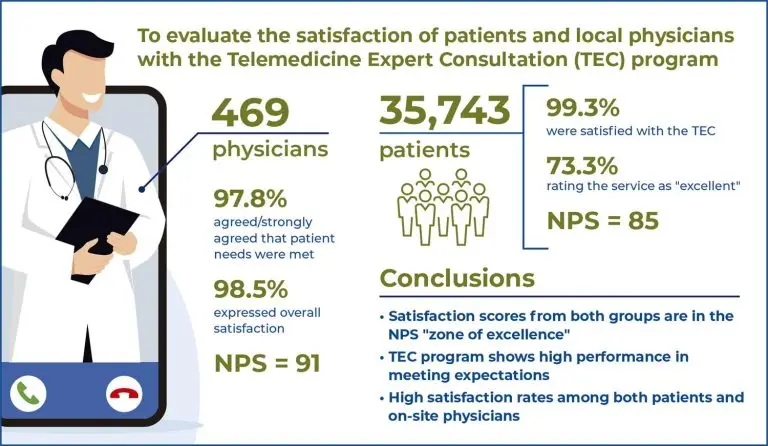31/Oct/2025
Stigma, quality of life, and return-to-work outcomes among organ and tissue transplant recipients in Brazil: a cross-sectional study
DOI: 10.31744/einstein_journal/2025AO1737
Highlights ■ The return to work rate was 53.7%, with slower and lower reintegration among low-income recipients. ■ Individuals with higher socioeconomic status (Classes A and B) were over twice as likely to return to work compared with lower socioeconomic status. ■ Higher stigma scores were significantly associated with reduced quality of life in Functional Capacity, Mental Health, and Social Functioning domains (p<0.001). ■ Older age (≥51 years), racial disparities, and unemployment before transplantation were strong barriers to occupational reintegration. […]
Keywords: Organ transplantation; Quality of life; Return to work; Social Stigma; Surveys and questionnaires
23/Oct/2025
Thin-cap fibroatheroma association with local inflammatory activity in coronary disease: an optical-coherence tomography study
einstein (São Paulo). 23/Oct/2025;23:eAO1592.
View Article23/Oct/2025
Thin-cap fibroatheroma association with local inflammatory activity in coronary disease: an optical-coherence tomography study
DOI: 10.31744/einstein_journal/2025AO1592
Highlights ■ Optical coherence tomography enables in vivo characterization of inflammatory activity within coronary plaques. ■ Thin-cap fibroatheromas demonstrate greater macrophage accumulation than non-thin-cap fibroatheromas. ■ Neovascularization is more frequent and quantitatively greater in thin-cap fibroatheromas. ■ The combined burden of macrophages and neovessels provides predictive value for plaque vulnerability. ABSTRACT Objective: The aim of the present study is to assess whether the intensity of local inflammation relates to the presence of thin-cap fibroatheromas. Methods: Retrospective, single-center study of patients […]
Keywords: Atherosclerosis; Coronary artery disease; Inflammation; Microphages; Plaque, atherosclerotic; Tomography, optical coherence
13/Oct/2025
Assessing the impact of sex and circadian rhythms on rodent behavior: refining preclinical study designs
einstein (São Paulo). 13/Oct/2025;23:eAO1614.
View Article13/Oct/2025
Assessing the impact of sex and circadian rhythms on rodent behavior: refining preclinical study designs
DOI: 10.31744/einstein_journal/2025AO1614
Highlights ■ Sex plays a crucial role in behavioral assessments of preclinical study designs. ■ Circadian rhythm influences episodic memory performance in rodent behavior. ■ Spatial memory exhibits fewer variations than locomotion and episodic memory. ■ Sex and the circadian cycle are critical factors in behavioral assessment. ABSTRACT Objective: This study aimed to investigate the effects of sex and time of day on behavioral parameters in healthy rats, focusing on locomotion, cognition, and memory (both spatial and episodic). Methods: Twenty-four […]
Keywords: Behavior, animal; Circadian rhythm; Cognition; Locomotion; Memory, episodic; Neurodegenerative diseases; Rats, Wistar; Sex; Spatial memory
03/Oct/2025
Nationwide epidemiological analysis of surgically treated upper limb vascular trauma over 16 years in Brazil
einstein (São Paulo). 03/Oct/2025;23:eAO1339.
View Article03/Oct/2025
Nationwide epidemiological analysis of surgically treated upper limb vascular trauma over 16 years in Brazil
DOI: 10.31744/einstein_journal/2025AO1339
Highlights ■ Brazil had a higher upper limb vascular trauma incidence than the US, remaining stable over the years. ■ The region with the highest proportion of cases was the North, followed by the Southeast. ■ The most affected population was young men, with a lethality of 2.37%, comparable to that globally. ■ Most patients did not require intensive care (92.8%), and the average hospital stay was 4.39 days. ABSTRACT Objective: To evaluate the epidemiology of upper limb vascular trauma […]
Keywords: Brazil; Data mining; Epidemiology; Health Information System; Incidence; Upper extremity; Vascular injury
03/Oct/2025
Analysis of acquisition and retention of cardiopulmonary resuscitation skills according to training frequency
DOI: 10.31744/einstein_journal/2025AO1257
Highlights ■ All variables that affect the quality of cardiopulmonary resuscitation were analyzed. ■ In addition to performance, we analyzed participants’ confidence. ■ This study considered the cost of training using the traditional methodology versus feedback. ABSTRACT Objective: To analyze cardiopulmonary resuscitation skill acquisition and retention at 3 and 6-month intervals and determine the optimal training frequency and associated costs. Methods: Fifth and sixth-year medical students practiced cardiopulmonary resuscitation using a feedback-equipped simulator. Results: The study included 43 students. Training […]
Keywords: Advanced cardiac life support; Cardiopulmonary resuscitation; Clinical skills; High fidelity simulation training; Simulation training; Simultion training
22/Sep/2025
Attitudes, knowledge, opinions, and expectations of medical students towards medical artificial intelligence solutions: a cross-sectional survey study
DOI: 10.31744/einstein_journal/2025AO1401
Highlights ■Most students have a positive attitude towards medical artificial intelligence. ■ Artificial intelligence solutions would be frequently adopted if accurate, fast, and user-friendly. ■ Expectations include work facilitation and increased diagnosis and management speed. ■Most fear losing medical skills to artificial intelligence and desire governmental regulations. ABSTRACT Objective: To assess medical students’ attitudes, knowledge, opinions, and expectations regarding medical artificial intelligence solutions, according to their sex and year of study. Methods: This cross-sectional survey was a single-center study conducted […]
Keywords: Adoption; Artificial intelligence; Knowledge, attitudes, practice; Perception; Students, medical; Surveys and questionnaires
22/Sep/2025
Expression profiles of miR-23a andmiR-146a in the peripheral blood of women with premature ovarian insufficiency
DOI: 10.31744/einstein_journal/2025AO1421
Highlights ■ Higher miR-23a levels in patients with premature ovarian insufficiency vs. normovulatory women. ■ Lower miR-146a levels in patients with premature ovarian insufficiency vs. normovulatory women. ■ Novel biomarkers for early diagnosis and monitoring of premature ovarian insufficiency. ■ Potential biomarkers to therapeutic targets for premature ovarian insufficiency. ABSTRACT Objective: This study aimed to analyze the expression profiles of miR-23a and miR-146a in women with premature ovarian insufficiency and to evaluate their value as biomarkers of the disease for […]
Keywords: Autoimmunity; Biomarkers; Inflammation; MicroRNAs; Peripheral blood; Primary ovarian insufficiency
22/Sep/2025
Exploring the relationship between cognitive performance and magnetic resonance imaging diffusion parameters in elderly individuals
einstein (São Paulo). 22/Sep/2025;23:eAO1467.
View Article22/Sep/2025
Exploring the relationship between cognitive performance and magnetic resonance imaging diffusion parameters in elderly individuals
DOI: 10.31744/einstein_journal/2024AO1467
Highlights ■ First study to investigate associations between cognitive performance and brain magnetic resonance imaging parameters in an older Brazilian population. ■ Uses advanced magnetic resonance imaging diffusion tensor imaging and automated analysis to quantify brain changes. ■ Validates findings through comparison with data from a large UK-based cohort. ■ Focuses on region-specific assessments, such as the superior longitudinal fasciculus and other key brain areas related to cognition. ■ Demonstrates significant correlation between 3MS and MMSE cognitive scores and diffusion […]
Keywords: Aged; Cognition; Cognitive dysfunction; Dementia; Diffusion tensor imaging; Magnetic resonance imaging; Neuroimaging; Neuropsychological tests
22/Sep/2025
Satisfaction with a telehealth service among older adults
DOI: 10.31744/einstein_journal/2025AO1578
Highlights ■ The average total QAS-Tele score was 4.71±0.54 out of 5. ■ Higher satisfaction was reported by older adults in the younger age range. ■ Higher satisfaction was reported by individuals currently working. ■ Higher satisfaction was reported by individuals with a higher number of comorbidities. ABSTRACT Objective: This retrospective observational study analyzed satisfaction with a telehealth service in older individuals living in a metropolitan city in Brazil. Methods: Sociodemographic, clinical, and telehealth service details (number of clinical appointments […]
Keywords: Aged; Patient satisfaction; Surveys and questionnaires; Telehealth patient monitoring; Telemedicine
22/Sep/2025
Patient and on-site physician satisfaction with a comprehensive specialist teleconsultation program
einstein (São Paulo). 22/Sep/2025;23:eAO1762.
View Article22/Sep/2025
Patient and on-site physician satisfaction with a comprehensive specialist teleconsultation program
DOI: 10.31744/einstein_journal/2025AO1762
Highlights ■ Net Promoter Scores of 85 and 91 among patients and physicians, respectively, over three years. ■ A total of 99.3% of patients were satisfied with the teleconsultation. ■ A total of 98.5% of physicians reported overall satisfaction with the program. ■ Surveys reflect excellence in telemedicine expert consultation. ABSTRACT Objective: Telemedicine via teleconsultations enhances access to specialized care. However, the degree of satisfaction among patients and providers with this method remains unclear. This study assessed patient and on-site […]
Keywords: Patient satisfaction; Remote consultation; Surveys and questionnaires; Telemedicine


